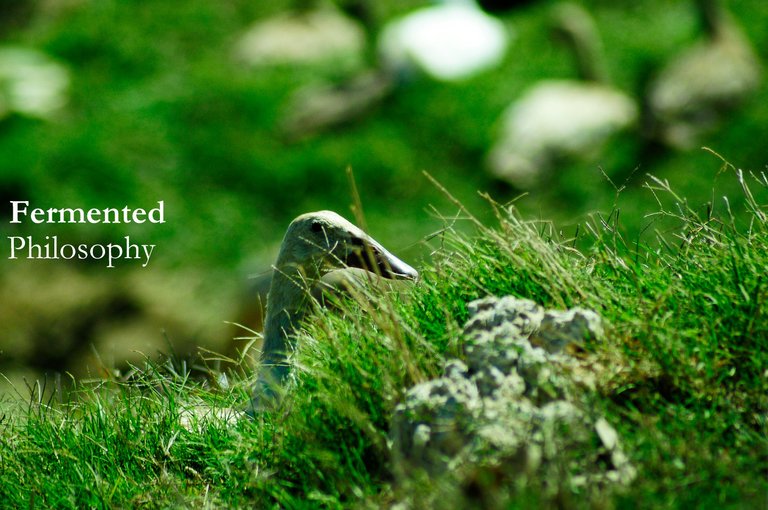Fermented Ph.D. Dump: Returning to the Source
A Tactical Recap to the Fermented Ph.D. Dump
There was a short period from about 2015-2017 when the buzzword was curriculum change. People went so far as to question the very nature of teaching something like science and math in Africa. But the general idea, especially in philosophy, was at the time that we needed to change the curriculum to (i) incorporate indigenous knowledge systems and (ii) question the status quo, i.e., western quasi-universalized knowledge systems. But somewhere in the more radical spheres, the total overthrow of the western curriculum was mentioned. But even amongst African philosophers who took the call to reform the curriculum seriously, these calls for an in toto rejection of the west sounded problematic. Two notions put forward/developed further by African philosopher Tsenay Serequeberhan in The Hermeneutics of African philosophy are valuable to showcase the problem of a complete overhaul of the system, namely, the return to the source and a cultural filtration and fertilization.
Return to the Source
Hidden in a small footnote in The Hermeneutics of African philosophy, Serequeberhan tells us that the return to the source is not a return to some arche or archival or fictional source hidden in the past. It is not the return to an untainted pre-colonial history, or pre-apartheid idea of living. This merely amounts to a return to a dead past, something that has gone by. Culture and tradition are not static but dynamic. It moves, it is moved by temporal and political factors. Going back to a moment in history would thus amount to going back to that time's response to that period or epoch. It would amount to nothing really but a stagnation of one's own society.
The simple reason is that going back to that fictional past would not help us today.
Those in the past, untainted by history or not, will not immediately help us understand the present. Only by looking at the past with a critical eye and with the future (present) in mind, can we adequately use that past knowledge.
Thus, the return to the source properly speaking is a return to vital energy, emotion, vigor, joy, and a need to liberate. It is not a return to a dead past.
But this also necessitates what Serequeberhan calls a cultural filtration and fertilization.
Cultural filtration and fertilization
Going back to a fictional past would not amount to any good. But we can still use that past to better understand the present when it undergoes a cultural filtration and fertilization of some sort. Also applicable to outside sources trying to infiltrate the current paradigm, we need to filter through them to take what can still be used in the current situation. Filtration emphasizes the need to get rid of what is not needed, and what is not beneficial. Fertilization emphasizes the idea that what is left after filtration can fertilize the current situation.
A Total Overhaul of the Curriculum vs. A Return to the Source Accompanied by Cultural filtration and fertilization
To some extent, the call for a total overhaul of the curriculum calls for a return to a fictional source by inadvertently accepting the premise that the current system is basically an infiltration by, e.g., western hegemonic philosophy. One cannot go back to a source untainted by, e.g., colonialism and apartheid. With the help of a cultural filtration and fertilization, however, one can incorporate both something of the past but also things from these alien concepts, e.g., western philosophy. It is nevertheless a controversial position to take. But in the end, as we saw in the previous dump, being aware of the philosophical issues emerging from a specific philosophical place, one cannot rely on a fictional past or alien infiltration to adequately deal with the present situation. It might ask us to come up with radically new ways of thinking and being, it might ask us to transform and augment existing concepts.
Postscriptum, or What is African Philosophy Then Afterall?
African philosophy, from my humble and ignorant position, is basically philosophy that is practiced and which emerges from the African lifeworld. This is very abstract and might entail the idea of a singular homogenous field. Far from it. Every lifeworld necessitates different approaches and methods to deal with the problems stemming from that place. What these philosophies might look like is obviously not something one can fix now, as they might not yet be needed. Again, this is very abstract, but it is the idea I am working with, the assumptions I hold.
In any case, this turned out more voluminous than I anticipated. I hoped you learned something from it. I hope you are well. All of the photographs are my own, taken with my Nikon D300. The musings are also my own, unless stated otherwise. Or in other words, the essay is my interpretation of, amongst others, Serequeberhan. Stay well, and happy learning!



Congratulations @fermentedphil! You have completed the following achievement on the Hive blockchain And have been rewarded with New badge(s)
Your next target is to reach 20000 upvotes.
You can view your badges on your board and compare yourself to others in the Ranking
If you no longer want to receive notifications, reply to this comment with the word
STOPTo support your work, I also upvoted your post!
Check out our last posts:
Support the HiveBuzz project. Vote for our proposal!